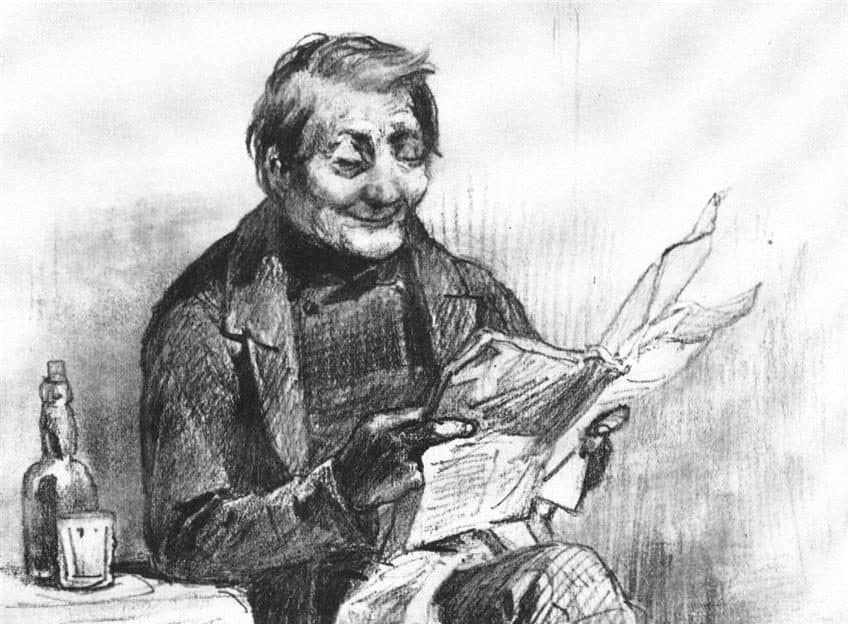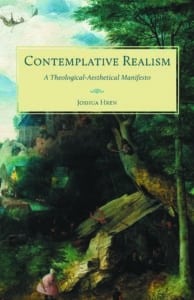
Joshua Hren is one of the key figures of a small, informal movement of practicing Catholic writers, based mostly in North America.
Hren founded Wiseblood Books in 2013 and co-founded the Master of Fine Arts program at the University of St Thomas in Houston with poet James Matthew Wilson. He is the author of three books of fiction. His Contemplative Realism: A Theological-Aesthetical Manifesto, written specifically for novelists and short story writers, was published by the Benedict XVI Institute in January of this year, responding to the Holy Father’s call to “ask rather more carefully what ‘the real’ actually is.”
 Manifestos tend to have short shelf lives and there are many dangers in being explicit about art. Not the least of which is Thomas Merton’s observation that “As soon as one has finished saying something, it is no longer true.”
Manifestos tend to have short shelf lives and there are many dangers in being explicit about art. Not the least of which is Thomas Merton’s observation that “As soon as one has finished saying something, it is no longer true.”
Who we now think of as the great Catholic artists of the past would not have felt the need to describe themselves as such. Only in the context of the crushing secularism of our time should such things be spelt out explicitly. No longer can we be unself-conscious about our beliefs. Hren quotes Francois Mauriac, “If there is a reason for the novelist on earth is this: to show the element which holds out against God in the highest and noblest characters—the innermost evils and dissimulations; and also to light up the secret source of sanctity in creatures who seem to us to have failed.”
Yet, as Hren writes, “It would seem that those who narrate providence are transgressing the limits of imitation: how can grace, the precise workings of which none of us can pinpoint, be shown?”
But it has been done and can be done. What Happened to Sophie Wilder (2012) by Christopher Beha is the best example of this from recent times. Hren himself achieves this in several stories from his 2017 book This Our Exile.
Thus, Hren calls for a kind of writer’s sanctification that refutes modern notions of the separation between the man and the work. He seems to hint that the more virtuous the man, the more meritorious the work.
“The practitioner of contemplative realism must, in the exclusive sense, become a Christian contemplative,” he writes, becoming attentive to the source of God’s truth in the world, including Scripture, but above all the liturgy, where all things real come together.
The trouble is that “fiction”, as opposed to chronicles, storytelling or the narrative verse of Dante, is a modern invention, the first novels, as we know them, arising in the late 16th Century in newly modern, mostly non-Catholic societies.
The notion of novelty itself is tied up with 16th Century European individualism. As Les Murray says, “Prose is Protestant-agnostic”. In traditional societies there is probably no such thing as the novel or even individual “creativity” as such, merely (not to say merely) attempts at fidelity towards a representational goal.
Painters of icons were (and still are) assessed on their fidelity to a canonical original. An analogue of icon painting in words is hymns, where authors fit themes to words, as the liturgical calendar demands.
Narrative fiction was never part of any monastic tradition. Newman is the only saint we know of who wrote novels, and they are not his best-loved work. The existence of a talented cohort of Catholic novelists, Waugh, Greene, O’Connor et. al., in the 20th Century, seen in this light, seems more and more like an anomaly, and one wonders if there is a paradoxical connection between their popularity and the decline of the Church in that century. But that is a topic for a different essay.
Poets and artists will also remain believers because of their knowledge of the ineffable source of their creations.
In some sense, which Hren does not quite address, attempting to be a traditional Catholic writer of fiction is something of an oxymoron. More fruitfully, Hren examines the idea of co-creation with God, the plucking down of ideas from His ether
Honest artists know that their ideas are never fully their own and even the most ardent secularist would never deny the mystery of inspiration. Simon Leys has said that the last Christians will be poets who believe because of the Bible’s overwhelming beauty and unity of style, everyone else having lost their perception of beauty through sin.
Leys is right, and I would add that poets and artists will also remain believers because of their knowledge of the ineffable source of their creations.
Contemplative Realism is a wonderful achievement that fully engages with mainstream secular literary culture with no Catholic cringe. It contains copious inspiration for writers who wish to portray the unportrayable and capture all that is real.
The best chance of Catholic renewal, as has been stated in these pages before, is to present to the thirsty public the potency of art, architecture and writing that glorifies God by participating consciously in His Creation.
Lucas Smith is a poet and writer from Melbourne. His work has appeared in Australian Poetry Journal, Meanjin, Southerly, Dappled Things and many other journals. He is Editor in Chief at Bonfire Books.
